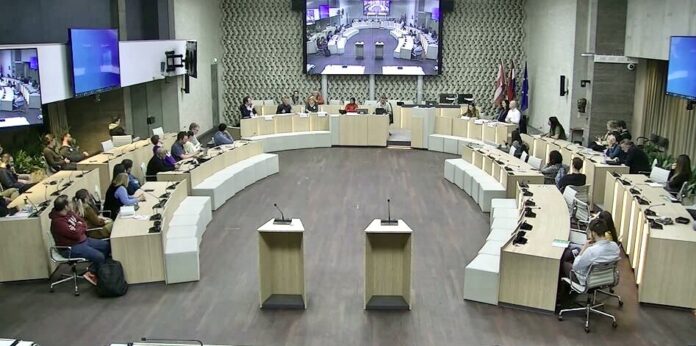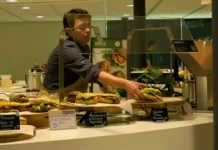I am part of the Eindhoven society now, I can vote, but how does that work?
This is a question that many new citizens, the internationals of Eindhoven and surroundings, ask themselves. Often they arrive from far away, from countries that have totally different political structures and views about democratic rights. The motivation to move to Eindhoven, away from their home culture, was mostly related to a job opportunity. Suddenly one receives a red envelope in the mail with the logo of Eindhoven. On the envelope it says “Stempas”, and in English “Voting pass”. Inside there is a purple looking document that allows the recipient to participate in the local elections. For many newcomers, this is unexpected, new and sometimes even frightening.
Now what? Who to vote for? And what will happen with this vote? Am I supposed to do this as an obligation? Or is this voluntary?
Our democracy in the Netherlands goes back about 200 years. It gradually became a public right to vote for our representatives in government. In the beginning, only men with employment could vote. Gradually this opened up to a common right for everyone older than 18. Since 1920 also women were included in the voting community. Back then it was fairly easy.
There were two political pillars: the right-wing (representing the employers of the business world and their interests) and the left-wing (representing the employees and their interests). You either voted for one or the other. The left and right-wing parties would alter leadership as a natural balancing act. Over time, especially after world war II, the political spectrum started to diversify. New political parties started to arise with novel standpoints to which people could adhere. Religious motivations, liberal parties and even much more detailed points of attention such as the green party, the party for animal rights, the party for elderly people or 50plus, even a political party for parties, etc. There are political parties that act both locally in the elections for the municipality and nationally for nationwide representation. While other political parties are purely local.
In this local election of 2022, we see that 16 political parties present themselves in Eindhoven and all want your vote. Sometimes, this is very confusing of course. How can one make the best use of the vote?
The more choices one has, the more diversified the political arena becomes. You can only use your vote once. The political parties that gain the most votes would also become the ones that could lead the local government for the next four years. But this is not as easy as it sounds. If one political party would have gathered the majority of the votes then they would automatically be able to take the lead within the governance. But in a situation of so many political alternatives, it is extremely rare, even nearly impossible, for one single party to gain the absolute majority. So various political parties will have to find each other and cluster in a negotiation in order to get to a majority. Some parties fit better with each other than others. A complex negotiation starts among all the parties, in an attempt to establish a stable “coalition”.
During the period prior to the elections the political parties can present their wildest ideas and promises to society. After all, they have to try to gain your trust and your vote. But once the votes are counted the harsh reality is there. Various political parties have to try to get to an agreement on how to develop the region over the next four years. Some parties will settle in the opposition but many would like to have a governance role.
This role must however be supported, it must reflect their own priorities and it must be stable enough to fulfil the years ahead. This is not easy. The more parties involved in the negotiation more complex it gets to get to an agreement. And if the agreement is there it has to be sustained during those four executive years. None of the parties involved will be able to execute their entire wishlist. They will have to make concessions in order to reach a consensus with the others.
And that is not all. The local government is not the only player in society. We identify at least three more, each with their own complexity: the citizens (a conservative culture and behaviour), business (financial interests) and knowledge institutions. Regional development is also subject to contextual changes and evolution. In the 19th and 20th centuries, the city of Eindhoven developed as an industrial city with big players such as Philips and DAF. It had to grow fast to accommodate many new citizens from all over the country, attracted to the work opportunities in the region. The city could not do all this development by itself during its own growing pains. The industrial players, especially Philips, therefore took many initiatives that would otherwise be done by the local government.
When the multinationals started to divert towards low wage countries the city entered into a crisis of unemployment. The identity of the city was subject to revaluation in order to reconnect with the economic world in a new way. The idea to work together with the local business and educational institutions became known as Brainport. The city started to develop into a social meeting place, with many restaurants and recreational areas. Brainport was a stimulus for creative small and medium enterprises to develop in the world of technology, design and knowledge (TDK). Every four years the new governmental leaders would have to try to make the best of this cocreation environment referred to as “the triple helix”.
Now, in the 21st century, the complexity is further enhanced due to the many refugees, climate issues, growing healthcare costs, housing problems, etc. Our modern knowledge about the problems of air pollution, for instance, demands many adjustments in society to recover health and a healthy living environment. Many changes are needed, including in the field of citizen behaviour and engagement. This is extremely complicated simply because people are normally reluctant to let go of their status quo, especially if this has given them a lot of perceived wellness. The overall voting behaviour is therefore mostly conservative in an attempt to hold on to this wellness, or perception thereof.
The government and many of its public services are largely dependent on money. This also affects the decision making of the local government and its dependence on the national government for large parts of its funding. A new way to address the complexity of local issues is by participating as local government in local values-driven cooperations that increasingly involve the citizens and the local business community.
A modern example of societal cocreation in a multidisciplinary context is AiREAS. AiREAS is a local citizen’s initiative that unites all institutions around the natural human values of health and air quality. It is based on the aspect of shared responsibilities for our sustainable wellness in a co-creative quadruple helix environment. This puts yet again extra demands on the governmental leadership profiles that get pushed forward during the elections, and the way the city council provides support to such public, non-political, coalitions.
So nowadays we don’t refer to the elections anymore as a way to pass responsibilities to certain political movements and hierarchies every four years. We see the elections now as the selection process of our governmental partners with whom we can work together in the co-creation of a resilient, progressive, healthy, safe and self-sufficient society. It is therefore key to use our votes and use them wisely, for our self-interests and for the common good.
Written by: Jean-Paul Close











